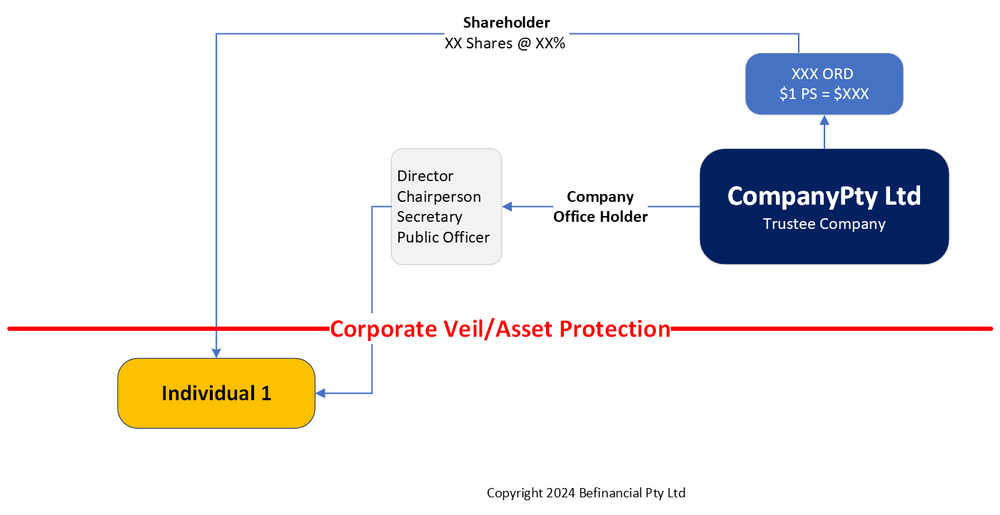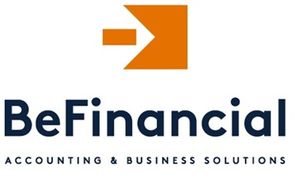Company
Company - 1 Director
 Company - 2 Directors
Company - 2 Directors

Transitioning from a Sole Trader to a Company in Australia: An Expanded Guide
Introduction
Transitioning from a sole trader to a company structure in Australia is a pivotal move that can redefine your business's potential, liability, and professional image. This guide provides a detailed overview of the benefits and drawbacks, outlines the roles within a company, emphasizes director duties, and introduces the requirement for a director identification number.1. Understanding the Differences
Transitioning to a company structure involves significant changes in legal status, tax obligations, and compliance requirements. Companies enjoy limited liability and potentially lower tax rates but face stricter reporting and governance standards.
2. The Pros and Cons of Becoming a Company
Pros:
- Limited Liability: Shareholders' personal assets are generally protected from business liabilities.
- Tax Advantages: Companies are taxed at the corporate tax rate, which can be beneficial depending on your income level.
- Increased Credibility: A company structure may be viewed more favorably by clients and investors.
- Capital Raising: Companies can raise capital more easily through the sale of shares.
- Perpetual Succession: Companies continue to exist beyond the change in ownership or directors.
- Complexity and Cost: Setting up and maintaining a company involves more regulatory compliance and higher costs.
- Reporting Requirements: Companies must adhere to strict reporting and governance obligations.
- Director Responsibilities: Directors have legal obligations that, if breached, can lead to penalties.
- Directors: Responsible for the company's governance, directors make strategic decisions and ensure compliance with legal obligations.
- Shareholders: Owners of the company who invest capital and have the right to vote on significant issues.
- Secretary: An officer responsible for ensuring compliance with statutory and regulatory requirements, though not mandatory for all companies.
- Public Officer: Required for companies subject to taxation, responsible for the company's tax affairs.
Directors have a legal duty to act in the best interest of the company, maintain confidentiality, avoid conflicts of interest, and ensure the company does not trade while insolvent. Breaching these duties can result in significant penalties.
As part of enhancing corporate governance, Australia requires all directors to obtain a Director Identification Number (Director ID). This unique identifier aims to prevent illegal phoenix activity and improve director accountability. Directors must apply through the Australian Business Registry Services (ABRS) before being appointed.
5. Steps to Restructure
Outlined steps include obtaining professional advice, registering the company with ASIC, setting up the company structure, and transitioning business operations.
6. Ongoing Compliance
Highlights the importance of annual reviews, tax reporting, and maintaining proper records to meet ongoing compliance obligations.
Conclusion
Shifting from a sole trader to a company is a considerable but beneficial move for many businesses in Australia, offering legal protections, potential tax benefits, and enhanced professional stature. It's crucial to weigh the pros and cons, understand the roles and responsibilities involved, particularly the duties of directors and the requirement for a Director ID, and comply with all legal and regulatory requirements to ensure a smooth transition and successful operation.
Further Resources
- Australian Securities & Investments Commission (ASIC) - asic.gov.au
- Australian Taxation Office (ATO) - ato.gov.au
Book an appointment with Befinancial Accounting.
Contact - 1300 699 161
Email - info@befinancial.com.au
32 Main Rd Bakery Hill, VIC 3350
